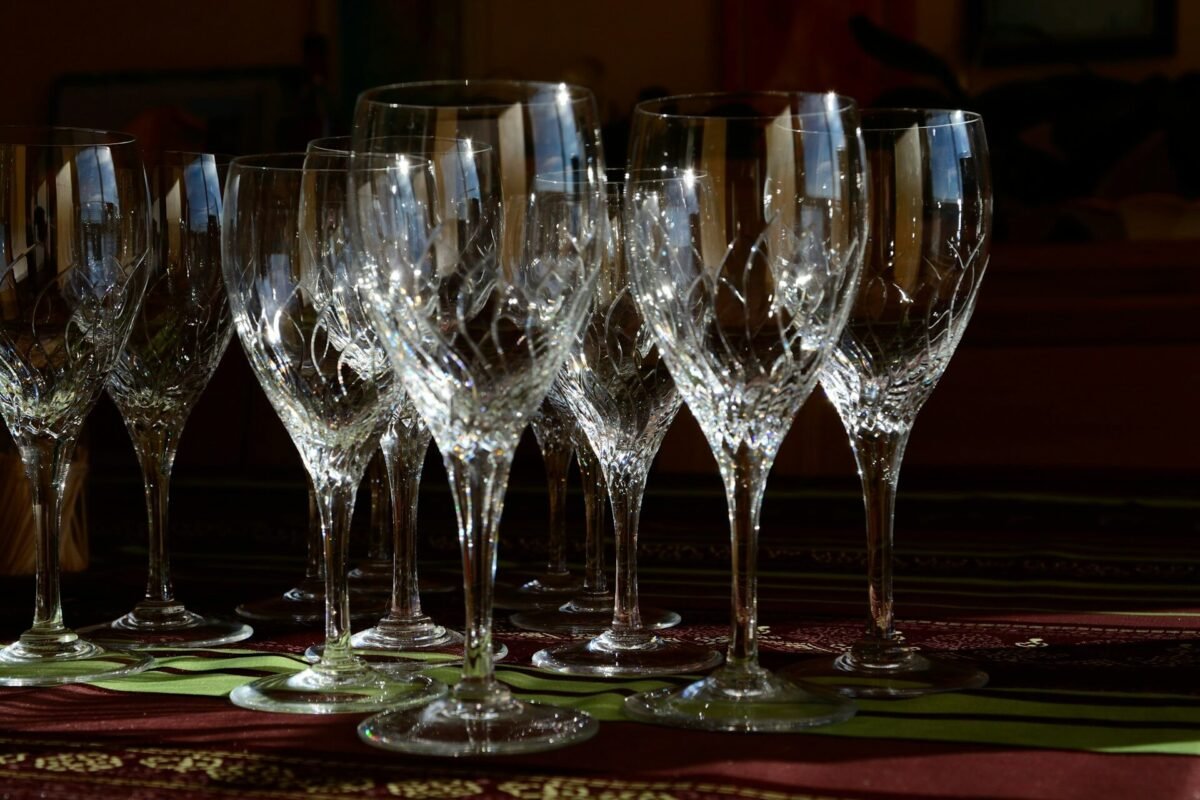Crystal glass has long been celebrated for its brilliance, clarity, and luxurious appeal. From wine glasses to decorative items, it’s a staple in both households and high-end establishments. However, concerns about its safety, particularly the presence of lead, have raised questions among consumers. This article dives deep into the topic, offering insights into the safety of crystal glass, alternatives, and practical tips for use.
What is Crystal Glass?

Crystal glass, often simply referred to as “crystal,” is a type of glass that contains certain materials to enhance its clarity and sparkle. Traditional crystal glass often includes lead oxide, which gives it:
- Exceptional brilliance: The high refractive index creates a stunning sparkle.
- Durability: Lead adds weight and strength, making it easier to cut and shape into intricate designs.
However, not all crystal contains lead. Modern lead-free alternatives use substances like barium, zinc, or titanium to achieve similar effects without health risks.
Key Safety Concerns About Crystal Glass
1. Lead Content and Health Risks
Traditional crystal glass contains up to 24%-33% lead oxide. While lead enhances the glass’s optical properties, it raises safety concerns:
- Leaching Risk: Lead can leach into liquids stored in crystal, especially acidic beverages like wine, juice, or vinegar. Studies have shown that prolonged contact increases the risk of lead contamination. For instance, a 1999 study by the New England Journal of Medicine found that wine stored in lead crystal decanters for 24 hours contained lead levels up to 20 micrograms per liter.
- Health Impacts: Long-term exposure to lead can affect the nervous system, kidneys, and reproductive health. Pregnant women and children are particularly vulnerable, as lead exposure can hinder development.
2. Safe Usage Practices
Using crystal glass doesn’t have to be entirely off-limits if certain precautions are taken:
- Avoid Long-Term Storage: Never store beverages in crystal containers for extended periods.
- Limit Use with Acidic Drinks: Acidity accelerates lead leaching, so use crystal sparingly for such drinks.
- Hand Wash Only: Washing crystal in dishwashers can damage its surface, potentially releasing microscopic particles.
3. Environmental Concerns
The production of leaded crystal also raises environmental questions. Lead waste from manufacturing can contaminate soil and water sources, posing risks to ecosystems. This has led to stricter regulations in many regions.
The Rise of Lead-Free Crystal Glass
As concerns about lead have grown, the market has shifted towards safer alternatives. Lead-free crystal glass, often marketed by crystal wholesale suppliers, uses materials like barium, potassium, or zinc to replicate the sparkle and clarity of traditional crystal. Key benefits include:
- No Lead Leaching: Safe for food and beverage use, even with prolonged contact.
- Eco-Friendly: Lead-free options have a smaller environmental footprint.
- Comparable Quality: Modern manufacturing techniques ensure lead-free crystal matches the brilliance of traditional crystal.
Example: Comparative Data on Lead-Free Crystal
| Feature | Leaded Crystal | Lead-Free Crystal |
|---|---|---|
| Lead Content | 24%-33% | 0% |
| Health Risks | Potential lead leaching | None |
| Durability | High | High |
| Brilliance | Very high | High |
| Price Range | Typically higher | Competitive |
Tips for Safe Use of Crystal Glass
If you own or plan to use crystal glass, here are some practical tips to ensure safety:
- Use for Serving, Not Storing: Serve drinks in crystal glassware but transfer leftovers to non-crystal containers.
- Short-Term Use Only: Limit the time beverages stay in contact with the crystal.
- Hand Wash with Care: Use mild soap and avoid abrasive sponges.
- Choose Lead-Free Crystal: Opt for modern lead-free options when purchasing new pieces from crystal wholesale suppliers.
Consumer Trends and Market Insights
The shift towards lead-free crystal has been reflected in growing demand. According to a 2023 report by Transparency Market Research:
- The global market for lead-free crystal glass is projected to grow at a CAGR of 6.5% through 2030.
- Increased awareness about health and environmental concerns is driving demand, especially in regions like North America and Europe.
Popular Lead-Free Crystal Brands:
- Schott Zwiesel: Renowned for durable, lead-free glassware.
- Riedel: Offers lead-free options alongside traditional collections.
- Waterford: Has introduced lead-free lines while maintaining classic designs.
Crystal Glass in the Wholesale Market
For businesses, sourcing crystal glass from reputable crystal wholesale suppliers ensures both safety and quality. Wholesale suppliers often carry a variety of lead-free options tailored to consumer preferences, including:
- Wine glasses and decanters
- Decorative vases and bowls
- Customizable crystal gifts
By prioritizing lead-free products, businesses can meet the growing demand for safer, eco-friendly crystal while appealing to health-conscious consumers.
Conclusion
Crystal glass, with its timeless beauty and elegance, can still be enjoyed safely when used appropriately. While traditional leaded crystal poses risks, lead-free alternatives offer a brilliant and worry-free option for modern consumers. Whether you’re a collector or a business owner sourcing from crystal wholesale suppliers, understanding the safety aspects ensures you can make informed choices.
In the end, the key is balance—appreciating the artistry of crystal glass while prioritizing health and sustainability.
View More Guide
https://www.quora.com/Is-lead-crystal-glass-safe

